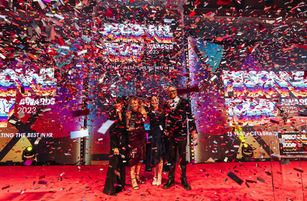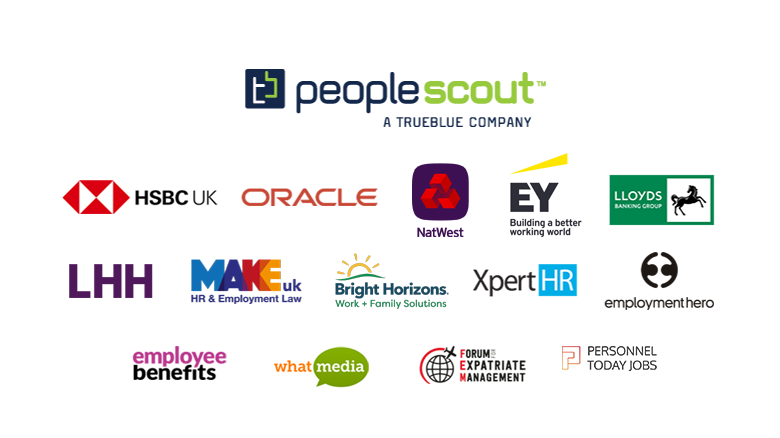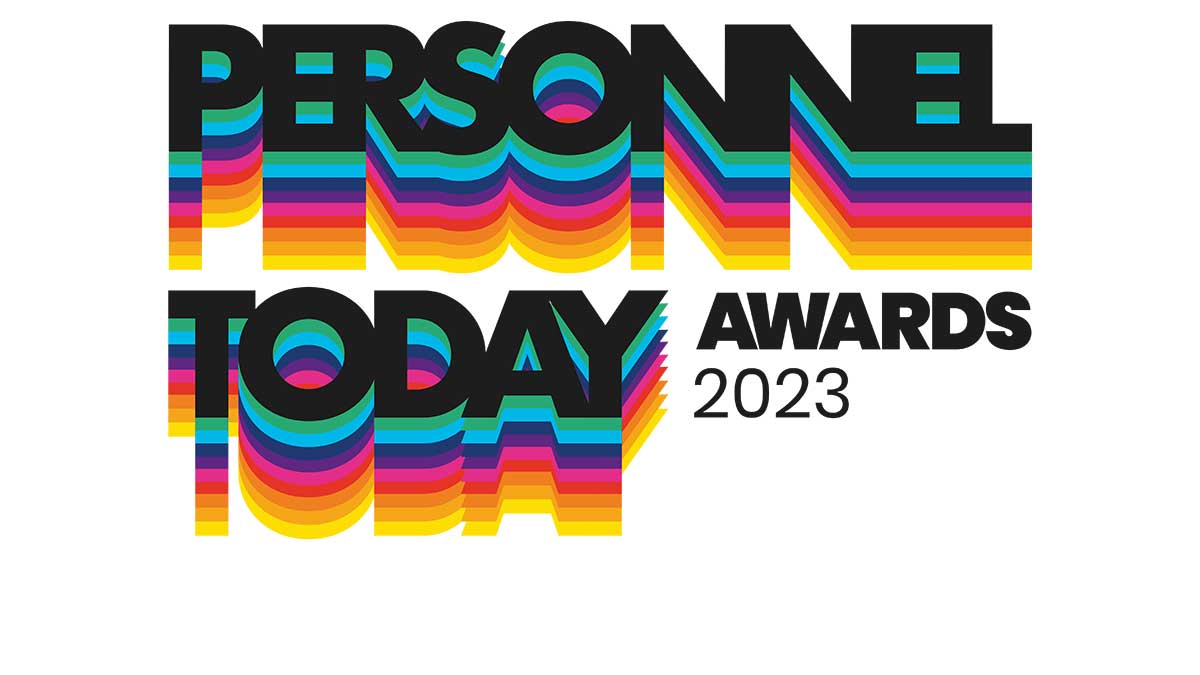Sports betting, gaming and entertainments group Entain, in partnership with the McLaren F1 Team, have driven off with Equality, Diversity & Inclusion Award for Larger Employers at the 2023 Personnel Today Awards. Our judges said “huge kudos” to both organisations for an excellent “returnship” initiative encouraging women to seamlessly return to work, empowered by new skills.
Here we profile the winning entry and those of the other other finalists.
WINNER
Entain in partnership with McLaren F1 Team
Entain recognises that the most successful businesses are the most sustainable ones, and that diversity, equity and inclusion are key to sustainability and success. To achieve its commercial ambitions, it seeks to embed inclusion in everything it does. There is also an imperative to reflect the customer base and that a rapidly growing proportion of sports bettors globally are now female.
Personnel Today Awards
All our 2023 winners revealed
View the 2023 photo gallery
The Personnel Today Awards 2024 open for entries around Easter
Sign up to keep updated
Through two of Entain’s brands, PartyCasino and PartyPoker, it held a commercial sponsorship with the F1 team. Entain identified a shared desire to address the lack of female representation.
The motivating factors for the McLaren F1 Team were the same as its own, accelerated by dramatic growth in the female F1 fan base to 40%.
Riffing on the well-recognised ‘internship’, Entain’s returnship is focused on supporting women back into their STEM careers after a period of unemployment, underemployment or reskilling.
The returnship runs for six months with the intention to convert delegates into permanent recruits during or after the scheme. In order for the time within placement teams to be meaningful, delegates are matched to one role for the duration of the six months.
The launch of the Entain x McLaren F1 Team returnship has enabled Entain to build relationships with a number of key external partners who have not previously worked with the betting and gaming industry, including the Women in Engineering Society, Tech Returners and STEM Returners. The results have seen Entain benefit from a huge uptick in the diversity of its applicants, achieving over 100 women applying for a returnship placement. Of these, 39% were Asian and 6% Black African or Black Caribbean, achieving a greater diversity of applicants than in the firm’s regular ad-hoc vacancies.
RUNNERS-UP
AstraZeneca
The success of the pharmaceutical giant centres on the philosophy that a team is at its most creative when people think differently from one another, in an environment where different views are welcomed and valued. The company has set its ED&I aspirations on equal gender representation for senior leadership positions.
In 2020 the L&D team designed a development initiative called Diversity by Design, which is centred on the uniqueness of a person, moving from a traditional gender or single lens focus to an intersectional approach considering many unique factors such as neurodiversity, ethnicity, educational background, LGBQTAI+ and learning preferences.
Professional coaching allows individuals to focus on personal development goals. Learning interventions are classified into core and elective elements which are mapped to development outcomes. This allows the participant to choose what is most aligned to their personal needs. A wide range of core and elective elements are offered, with 27,132 possible combinations.
AZ focuses inclusion and diversity aspirations on gender representation in leadership positions. To ensure that AZ has a diverse talent pipeline to fill these leadership positions now and in the future, three areas were prioritised to measure the impact on employees who identify as women and who are from geographically diverse countries of origin: retention, performance, promotion. The results show only 4.1% of participants resigned within 12 months of the initiative, versus 8.3% of peers. Overall attrition was 6.65% versus 8.3% peer average.
DHL Supply Chain
DHL acknowledged that the business had a lack of representation from a variety of diverse groups. In DHL’s application process, there were a number of groups that were unconsciously given an advantage over others by the lack of diversity. It was essential that this be changed, which meant not only addressing the issues of attraction and the application process, but also ensuring managers and assessors understood and put aside their unconscious biases in order to create a level playing field.
As an alternative to the traditional CV-based application, DHL introduced a strengths-based approach, which ensures that all candidates have a fair chance to succeed, regardless of their background. The purpose of this process is to assess candidates based on their passions, potential, and strengths rather than based on their previous experiences.
For the purpose of identifying under-represented groups, DHL attended third-party events and noted the demographics of the attendees.
This helped to reshape their attraction strategy to make their programmes more inclusive by, for example, using gender neutral language in job adverts, changing the weighting of questions to reduce impact on ethnic minority candidates and removing grade 2:2 from applications.
As standard, DHL track the progression of underrepresented groups such as females and ethnic minorities. This year they have also done a deep dive into ethnic groups and introduced reporting on socio-economic background, which takes account of social and economic factors. DHL found 44.59% of applications were from candidates who identified as an ethic minority, an increase from 43.6% from the previous year, and that 38.9% of applications were from female candidates and also 39% of candidates were from candidates from a low socio-economic background – both up on last year.
First Group PLC
Transport operator FirstGroup employs over 30,000 people in depots, stations and offices, providing vital services which connect people and communities. Its challenge in 2017 was to meet four gender commitments: increase the number of female applicants for all roles; encourage more women to stay and progress, through employment policies which make it easier to combine a career with family life; support and develop more women to move into higher paying roles; and, ensure men are more aware and equipped to play their part in creating an inclusive workplace which is welcoming to women.
Beginning this journey five years ago, the organisation sought to work in partnership with external experts, selecting Edit Development, and instigating a series of programmes such as Step Forward and Reach Forward.
Feedback from the resulting programmes has been extremely positive. Stacy Pugh, promoted to head of business design, West Coast Partnership Development, said Step Forward “was a refreshing take on personal development, spending time with like-minded women addressing some of the real personal challenges and blockers to taking that next step in your career was really empowering. ”
Hassan Khalil was promoted to Head of Performance Evaluation, GWR, and said: “Reach Forward helped me reflect on my career pathway to provide direction on my decision making and gave me the confidence to ‘put my hat in the ring’ and take a leap of faith in myself.”
In 2023 the proportion of women in the group has increased to 20.8% (2022: 20.3%). The proportion of women in senior management positions has also increased from 20.5% to 23.5% and 44% of board members are women. In terms of ethnicity, 11.3% of its workforce are from an ethnically diverse background (2022: 9.8%).
HSBC UK
HSBC UK’s 3Rs Inclusion strategy aims to deliver positive outcomes for its customers, colleagues and the wider UK community via an inclusive culture and initiatives. This results in: marketing embodying inclusion within brand messaging such as the Richard Ayode Beyond Borders campaign; corporate banking supporting ethnic minority customers, through sponsoring UK black business shows, and developing innovative mentoring to support hundreds of black and ethnic minority entrepreneurs; recruitment actively opening up employment opportunities to over 500 people with disabilities.
The 3Rs provides a framework upon which all inclusion activity is delivered. An inclusion dashboard was developed with targets and indicators for each of the 3Rs. This is reported to the executive team quarterly and updates against plans are provided. Executives are asked to provide personal responses to how they are delivering the 3Rs within their business lines and deliver bespoke inclusion plans for their business area to respond to local needs.
The 3Rs stipulate that HSBC wants a workforce which Represents the diversity of the UK at all levels. It seeks a culture of Respect where everybody can belong, achieve their full potential, and is safe to speak up, and a Reputation for inclusive practice among customers, colleagues and the wider community. As a result of its initiatives HSBC’s representation of Black heritage leaders has more than doubled since 2020 and there has been year on year improving female representation at senior levels, currently at 38% and a growth in support for colleagues with disabilities. The company says it’s on a journey and knows there is more to do, but it believes that its approach is helping it to be a truly inclusive bank, opening up a world of opportunities for everyone.
Lloyds Banking Group
Inclusivity is one of the bank’s five core values that underpins everything it does – for colleagues, customers and communities. It has made public commitments in a number of key areas, including: for 50% of senior roles to be held by women by 2025; becoming the first FTSE 100 company to set public goals to have 10% of all roles, and for 8% of senior management roles, to be held by Black, Asian, or minority ethnic colleagues by 2020. It has now set targets to increase the representation of its Black, Asian and minority ethnic colleagues to 13% in senior roles and increase Black heritage representation in senior roles to at least 3% by 2025. Additionally in April this year it launched a new public goal to double the representation of colleagues with disabilities at senior management levels to 12% by 2025. Lloyds has also taken a lead in publishing both gender and ethnicity pay gap reports.
Some examples of the work undertaken include mandatory race education learning programme delivered to 72,000 colleagues; online ED&I-related learning delivered most quarters in training schedules; designed cultural events/awareness days and faith and religion fact sheets accessible to all colleagues.
Recruitment has seen an array of strategies to improve diversity continuing the implementation of “Textio” AI advert authoring coach to remove unconscious bias in job adverts to attract more diverse candidate pools and utilising a broad range of diverse job boards from such as diversifying and black young professionals to cover the diversity spectrum. Its award-winning returners scheme is now in its seventh year with over 140 hires (97% women and 67% Black, Asian or Minority Ethnic heritage) into permanent roles. Its ConnecTech network provides support for women wanting to progress their technical career, encouraging women of all ages to reskill and pivot their careers into tech.
There have been abundant gains: in 2014, representation of women in senior roles stood at 28%, it’s now over 39%. Gender pay and ethnicity pay gaps have fallen, and the graduate intake was far more diverse in 2022 than previously.
In association with

Sign up to our weekly round-up of HR news and guidance
Receive the Personnel Today Direct e-newsletter every Wednesday

